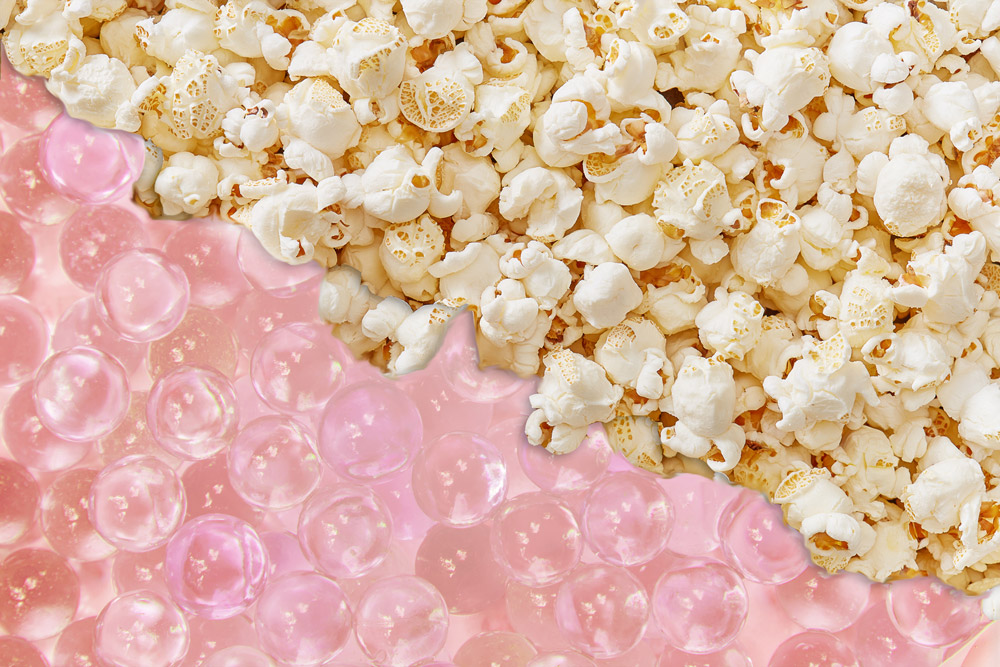
During the past couple of months, it may have felt as though time has slowed down or even stopped entirely. In the time of the pandemic, as we all strive to make it through ‘The Great Pause’ with our bodies, minds, and relationships (relatively) intact, it is easy to think that we are living an interminable groundhog day, as we cruise from Zoom meeting to WebEx conference, often by way of the refrigerator for a snack. But the truth of the matter is that time has not, in fact, stopped, nor has it even slowed down despite the fact that the last few months may feel like an eternity. And as time continues to pass, we continue to age, and no amount of magical thinking is going to change that. So, as many of us continue to sit at home, waistlines expanding in direct proportion to time spent snacking as we wait for our states to re-open for business, we face another physical issue. We are aging. And as we age, certain permanent changes take place in our temporarily sedentary bodies, changes which may throw the body’s natural homeostasis into disarray. Perhaps, on the current scale of things, optimal homeostasis might not seem like a major issue, but when we do re-emerge into the post-pandemic world, our health may well be compromised. How? Let’s take a look at one important component affected by the passage of time: collagen.
The term collagen actually refers to a family of substances that typically make up around 33% of the human body’s proteins, each categorized by its exact composition.
Of the 28 different types, roughly 90% are classed as ‘Type 1’ and are found in tendons, internal organs, skin, and some parts of the bone. Where ‘Type 2’ collagens reside in the cartilage, ‘Type 3’ reside in bone marrow and lymphoid tissues. ‘Type 4’ are integral to the ‘basement membrane’ which surrounds most tissue types, and lastly, ‘Type 5’ is the class of collagen associated with hair. In essence, if a body part is associated with providing a robust structure, strength, or elasticity, it uses collagen to function. And when consuming a balanced diet, we naturally ingest a wide range of protein-rich foods that the body metabolizes into amino acids. These are then reconstructed to make a variety of substances, including collagen. But what if – during lockdown – we are not eating an optimal diet and are failing to move our bodies in a way that promotes the healthy synthesis of collagen? After all, according to Dr. Elizabeth Bradley, Medical Director of the Cleveland Clinic’s Center for Functional Medicine, as we age the ‘body may no longer absorb nutrients as well or synthesize them as efficiently.’(1)
But all is not lost and perhaps we can look to supplements for the rescue. Scan the shelves of any vitamin store and you’ll find an array of products said to support the body in producing collagen. From topicals such as creams and lotions to herbal ‘boosters’ and adaptogenic powders, it seems like there’s a product tailored to most needs. In fact, for those who prefer to get their supplemental collagen by ingesting ‘regular foods,’ companies such as Hershey and Nestlé offer consumer-ready products such as enhanced water and popcorn. Yes, you did read that correctly: collagen popcorn is actually a thing. But before we rush to the grocery store to stock up on these functional foods, there is something to bear in mind. Like gelatin, collagen for supplements is produced in what is, for some, an unsavory process wherein miscellaneous ‘scraps’ of animals such as cartilage, bone, and hooves are rendered first into a sludge to create gelatin, then further refined as collagen. For mainstream players in the industry, there are two main sources of primary ingredients for this process: cows and fish. In the case of bovine collagen derived mainly from skins, cow hides are subjected to hydrolysis wherein a double decomposition reaction is created using water as the reactant. The cleaned and de-fatted hides are soaked in water at a temperature of around 190°F to release the collagen, after which they are dried in an evaporative process. Milling the resultant materials engineers a protein powder which is high in four specific amino acids: alanine, proline, hydroxyproline, and glycine. Marine collagen, on the other hand, is derived from the skins of wild, deep-sea fish such as cod and is typically high in the amino acids glycine and proline. SeaSource collagen, which is manufactured in Canada by Norland Products Inc., publishes Certificates of Analysis in which the protein content of its signature product is listed at 94.7%. Interestingly, in terms of allerginicity, the Norland product was tested for parvalbumin, the water soluble protein which causes most fish-related allergic reactions. Using laboratory-controlled enzyme-linked immunosorbent assays (ELISA tests) as sensitive as 0.02ppm, the product was found to contain ‘no detectable allergen.’(2)
With that said, other manufacturers may not be as conscientious as Norland in the manufacture of allergen-free supplements. Last year, a report at NutraIngredients.com noted that the Spanish Agency for Food Safety and Nutrition (AESAN) warned of the ‘presence of an ingredient derived from undeclared fish in the hydrolysed (sic) collagen powder produced by Natur Nutrition.’(3) Fish and seafood in general can, as we know, cause allergic reactions in susceptible consumers and for a small percentage of those at risk, the outcome can be lethal. Undeclared marine-sourced ingredients therefore pose a significant risk to public health which is why the affected batches were swiftly withdrawn from the market.
Similarly, as recently as February of this year, Zenwise Health®, a company located in Wilmington, DE, notified customers of a product recall.
Having sourced some ingredients from an external vendor, ABH Pharma, Inc., Zenwise Health® was informed that the supplier had failed Food and Drug Administration (FDA) inspections and ‘out of an abundance of caution’ the company opted to recall affected products. Likewise, undeclared milk in Bulletproof 360, Inc.’s supplement Bulletproof Collagen Protein triggered a voluntary recall for products distributed to 15 states. Bulletproof 360, Inc., based in Bellevue, WA, had been previously subject to a recall that affected not only domestic sales but international product distribution too. According to FDA documentation. ‘Collagen Protein Bar and Bite products [were recalled] because they have the potential to be contaminated with Listeria monocytogenes, an organism which can cause serious and sometimes fatal infections in young children, frail or elderly people and others with weakened immune systems.’(4) Potentially contaminated products were distributed broadly, with no fewer than 41 countries affected alphabetically from Australia to the Virgin Islands (USA).
So contamination problems can raise their metaphorical heads even in products destined for the health and wellness markets.
However, this alone does not seem to be slowing the corporate interest in these products. Indeed Nestlé’s recent acquisition of a majority stake in Vital Proteins, a company founded in 2012 to manufacture collagen bars, powders, capsules, and drinks, is another example of the behemoth’s on-going incursion into the health and wellness sectors. At a time when the company is simultaneously divesting itself of minimal growth manufacturing operations such as those for ice cream and candy, this pivot is an indicator of a new corporate focus.
With that said, however, there are, of course, also issues around sustainability. We have noted in several previous articles a growing awareness of and interest in alternative protein sources. Given the environmental impact of industrial-scale animal farming, the drive exists to source our food from non-traditional animals – remember the crickets and the jellyfish? – and from plant-based options, and the sourcing of collagen is no different. Composed of polypeptide chains, the peptides which make up proteins can be sourced from plants as well as from animals. And, given the risk to public health of zoonotic diseases, the space for botanical alternatives to bovine, piscine, or even porcine collagen products is broadening. Take, for instance, the emergence of boutique manufacturers such as Anima Mundi Apothecary which purchases botanical ingredients directly from indigenous farmers and wild-crafters in rainforest areas. The ingredients of the company’s Collagen Boost supplement include such seemingly exotic extracts as He Shou Wu powder (a compound derived from the root of the Reynoutria multiflora plant, a member of the buckwheat family) and mangosteen, an anti-inflammatory and antioxidant native to Southeast Asia. In addition, He Shou Wu extract, also known as Fo-Ti, is an adaptogen which is said to work with the body ‘to counter and resist physical, chemical, biological, emotional, and environmental stressors by raising nonspecific resistance toward such stress. They decrease the organism’s susceptibility to illness by allowing it to “adapt” to the stressful circumstances.’(5)
And what circumstances could be more stressful than the current pandemic situation? Given the reality of a world-wide contagion and everything associated with that, it does seem like the more support we can give our body in bolstering its natural resistance to disease the better So what does that mean in terms of supplementing our diets with collagen products? Unanimously across the board, manufacturers recommend sourcing the highest quality, most minimally processed, organic product possible – an award to which each one, of course, lays claim. But perhaps we should consider the advice of Shannon Weston, a registered dietitian at the University of Texas School of Public Health in Houston, TX, who is quoted in LiveScience: ‘When considering whether to take a collagen supplement, it is important to first factor in how your diet and lifestyle are affecting collagen production in your body. “Adding a supplement to a poor diet and lifestyle will not have any health benefits […] Focus on lifestyle factors and a well-balanced diet, and skip the supplements.”’(6) Certainly when pondering the prospect of imbibing bottled water infused with collagen from rendered animal hides, focusing on lifestyle factors does indeed seem like an increasingly attractive alternative.
To supplement or not to supplement, the choice is yours. So what are your thoughts? Do you snack on collagen-enhanced foods or stir supplement powder into your smoothie? And have you seen good results? Let us know in the comments…
References:
- https://health.clevelandclinic.org/the-best-way-you-can-get-more-collagen/
- https://seasourcecollagen.com/index.php/technical-info#certificates
- https://www.nutraingredients.com/Article/2019/11/14/Recall-round-up-drinks-powders-and-pills
- https://www.fda.gov/safety/recalls-market-withdrawals-safety-alerts/bulletproof-360-inc-recalls-collagen-protein-bars-and-bites-because-possible-health-risk
- https://animamundiherbals.com/collections/all/products/new-plant-based-collagen
- https://www.livescience.com/collagen.html
